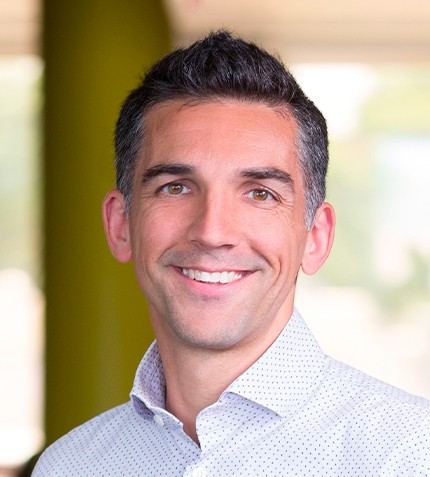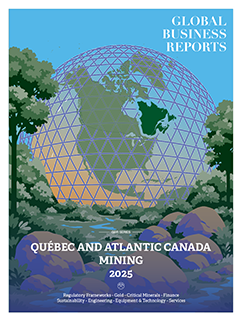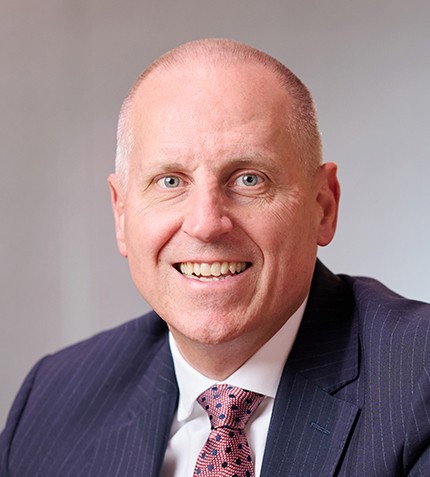
"With most new projects located in remote regions, effective workforce logistics has become a strategic advantage."
RELATED PUBLICATION
Jean-Philippe Lavallée
FOUNDER AND CEO, NOMADIS
How has Nomadis evolved since its founding?
I founded Nomadis in 2001. The company’s initial focus was on delivering highly customized software solutions for the healthcare sector in remote areas, but as we got to work with multiple clients up north, we found out that our solutions had the potential to bring innovation to other areas like transport and accommodation in the resource sector. That evolved into the Nomadis Platform, which we envision as a holistic human logistics solution.
Typically, moving people has been handled in distinct segments; a mining camp operation might have a software solution, but it would address only the camp. When expanded to the full transport and accommodation ecosystem for a remote operation – involving multiple flights, ground transit, and nights of accommodation – the supply chain becomes very complex. Our approach has always been to integrate all those pieces into a unified solution, automate the process as much as possible, and provide a tight integration with supply chain partners.
What does Nomadis’ product offer today?
We offer a subscription-based cloud platform with multiple products and configuration models. Our clients can integrate it with their existing workflows, systems and suppliers to streamline their processes with a high level of customizability. The platform connects seamlessly with commercial airlines, travel agencies, HR, accounting, and access control systems, enabling end-to-end logistics and itinerary automation from an employee’s home to the work site and back. While our platform can cater to most clients with a vast array of features and integrations available “out of the box”, our team offers customized, turnkey solutions, including data migration, customization and personalized training. For complex deployments, on-site assessments and consulting ensure alignment between the platform and operational realities.
How significant is mining in Nomadis’ business?
Mining operations currently represent about half of our business, including major clients such as Agnico Eagle, IAMGOLD, Newmont, and Minerai de Fer Québec (MFQ), as well as many other projects of various scales. How does the platform enhance on-site safety?
For safety, it is crucial to know who is on site, in transit, on shift, and so on. The Nomadis Platform can integrate with on-site swipe cards and scanners. During the Canadian wildfires in 2023, for example, some of our clients had to evacuate their camps, making a snapshot of workers’ locations an indispensable tool.
Can Nomadis’ system help to alleviate the effects of Canada’s mining labour shortage?
The rapid growth of infrastructure, energy, and critical minerals projects across Canada is intensifying demand for skilled labour, straining an already limited workforce. To remain competitive, companies must offer more than competitive wages – they must ensure appealing working conditions, particularly for rotational workers on demanding schedules. Efficient logistics, clear communication, and operational reliability play a key role in easing pressure on workers and their families.
With most new projects located in remote regions, effective workforce logistics has become a strategic advantage. Increasingly, companies are flying in personnel from provinces such as Newfoundland and Labrador or British Columbia, underscoring a challenge we help address daily.
What benefits does the platform offer in terms of sustainability?
Remote operations carry a high environmental cost due to charter flights, ground transport, and camp infrastructure. Aligning workforce planning with project schedules helps reduce unnecessary travel and improve asset utilization. Efficient camp occupancy and strategic planning can lower energy consumption and avoid excess capacity. To address no-shows, we offer tools that enhance attendance tracking and transport coordination. Looking forward, we are working on innovative ideas namely in asset optimization and sharing to reduce the ’waste’ in supply capacity such as camp rooms and empty seats on flights and ground transportation, offering a path to lower costs and emissions through collaborative logistics.
What new developments can we expect this year?
We will continue to enhance our multi-tenancy system, allowing operators and subcontractors to collaborate within a shared digital ecosystem. It will provide full supply chain visibility, ensuring all stakeholders can coordinate with real-time information. This is especially important in mining, where integrated workforce management is essential.
On the user side, our redesigned mobile app will improve exception handling – such as schedule changes, re-bookings, tracking shift changes, leaves and sick days– enabling workers to manage their logistics directly.











